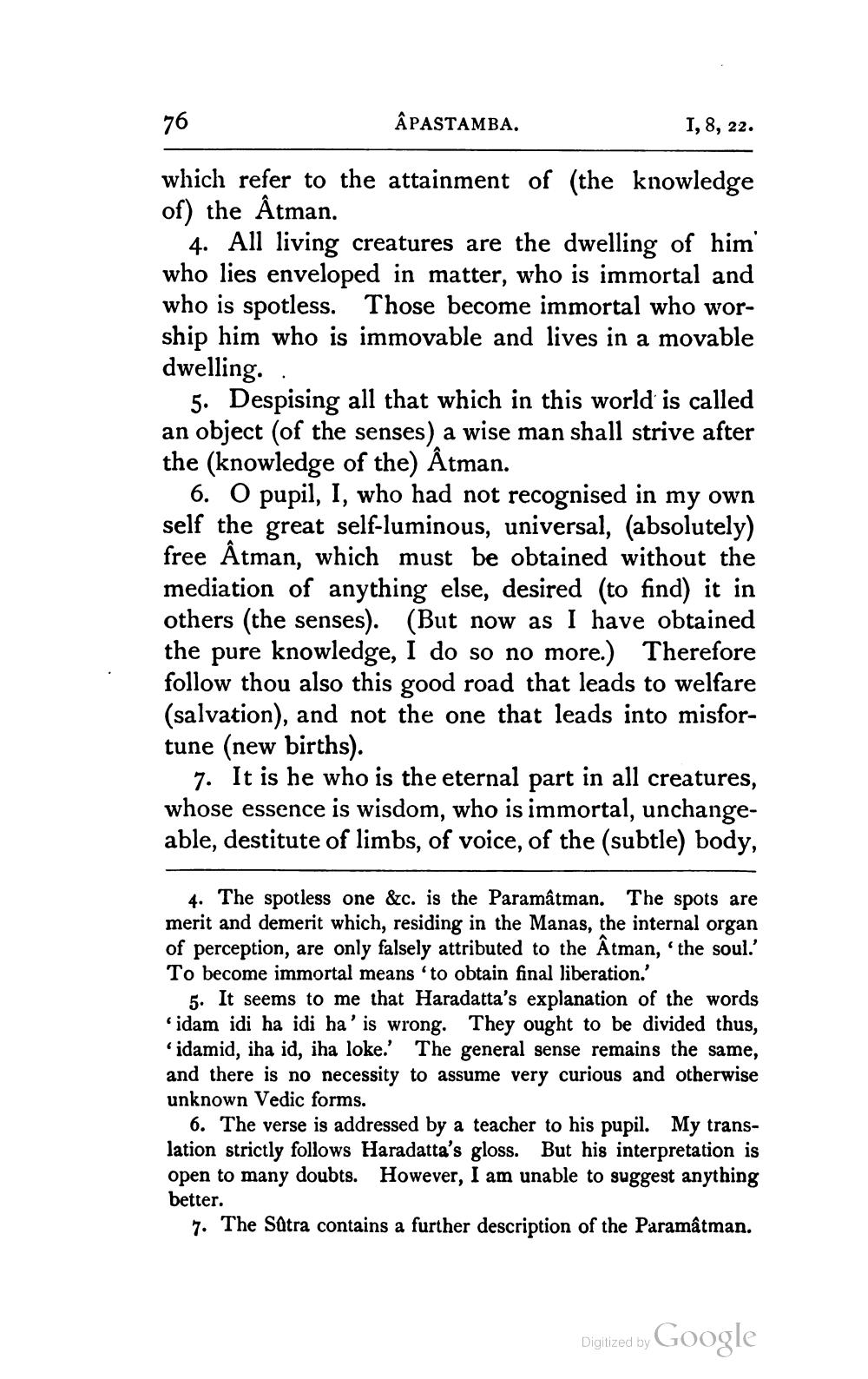________________
76
ÂPASTAMBA,
1, 8, 22.
which refer to the attainment of (the knowledge of) the Atman.
4. All living creatures are the dwelling of him who lies enveloped in matter, who is immortal and who is spotless. Those become immortal who worship him who is immovable and lives in a movable dwelling.
5. Despising all that which in this world is called an object (of the senses) a wise man shall strive after the (knowledge of the) Atman.
6. O pupil, I, who had not recognised in my own self the great self-luminous, universal, (absolutely) free Atman, which must be obtained without the mediation of anything else, desired (to find) it in others (the senses). (But now as I have obtained the pure knowledge, I do so no more. Therefore follow thou also this good road that leads to welfare (salvation), and not the one that leads into misfortune (new births).
7. It is he who is the eternal part in all creatures, whose essence is wisdom, who is immortal, unchangeable, destitute of limbs, of voice, of the (subtle) body,
4. The spotless one &c. is the Paramâtman. The spots are merit and demerit which, residing in the Manas, the internal organ of perception, are only falsely attributed to the Atman, the soul.' To become immortal means 'to obtain final liberation.
5. It seems to me that Haradatta's explanation of the words idam idi ha idi ha' is wrong. They ought to be divided thus, idamid, iha id, iha loke.' The general sense remains the same, and there is no necessity to assume very curious and otherwise unknown Vedic forms.
6. The verse is addressed by a teacher to his pupil. My translation strictly follows Haradatta's gloss. But his interpretation is open to many doubts. However, I am unable to suggest anything better.
7. The Sätra contains a further description of the Paramâtman.
Digitized by Google




